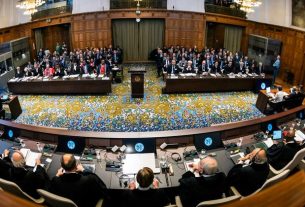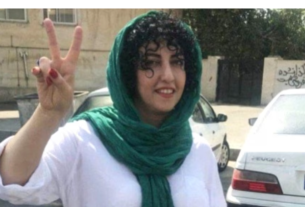Indian tax officials raided the BBC offices in Delhi and Mumbai today in an apparent reprisal for a two-part documentary critical of Prime Minister Narendra Modi. Gaurav Bhatia, national spokesperson for Modi’s ruling Bharatiya Janata Party (BJP), described the BBC as the “most corrupt organization in the world.”
Officials said they were conducting “surveys, not searches” to investigate allegations of tax evasion. However, they sealed off the offices for the duration of the raid and reportedly seized documents and phones of several journalists.
The Editors Guild called the raid a, “continuation of a trend of using government agencies to intimidate and harass press organizations that are critical of government policies or the ruling establishment.”
The Modi government had blocked the BBC documentary in India using emergency powers under the Information Technology Rules and compelled social media companies to take them down. The film highlighted Modi’s failure to protect Muslims and the discriminatory laws and policies adopted by his government.
The documentary ban and the subsequent raids are part of the government’s escalating crackdown on civil society groups and media freedom. The BJP government has repeatedly targeted journalists, critics of the government, and human rights activists including by prosecuting them under counterterrorism and sedition laws, raiding their workplaces and homes on allegations of financial irregularities, and preventing outspoken journalists and critics from leaving the country. Indian authorities have also been implicated in using the Israeli-produced spyware Pegasus to target journalists.
Modi’s misuse of “powers to intimidate, censor, silence or punish independent news media,” puts him into the camp of “populist and authoritarian leaders,” the New York Times warned in a recent editorial.
The Indian government holds the rotating presidency of the Group of Twenty (G20) this year and will be holding the summit in Delhi in September. Modi has called the G20 an opportunity for world to know India, “the mother of democracy, with its diversity and courage.”
These words ring hollow when weighed against the government’s actions. World leaders, including members of the G20, should press India to meet its pledges in international meetings on human rights, including to protect the right of people to exercise peaceful dissent.


